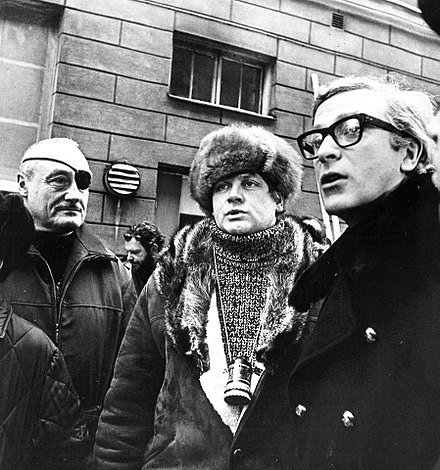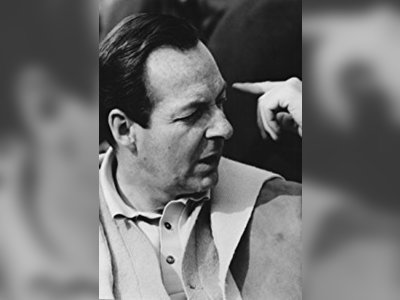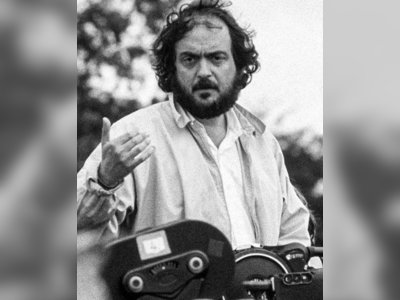British Heritage
Remember, Cherish, Learn.
beta
Ken Russell - Oscar-winning Director
Oscar-winning Director and his Enduring Legacy in British Heritage.
Contribution to British Heritage
Ken Russell was a prominent figure in British cinema, leaving a significant impact on the film industry and cultural heritage of the country. Renowned for his flamboyant and controversial style, he challenged the prevailing norms of British cinema, proving that it could be as audacious and imaginative as the works of esteemed Italian director Federico Fellini. Russell's contributions to British Heritage are multifaceted:
Pioneering Work in Television and Film: Russell began his directing career in television, where he made groundbreaking and creative adaptations of composers' lives, a departure from the conventional norms of the time. His early television work laid the foundation for his later success as a film director, making him a trailblazer in the field of visual storytelling.
Revolutionizing Film Adaptations: Russell was known for his bold and daring adaptations of existing texts, including biographies of Romantic-era composers. His innovative approach breathed new life into classic stories, adding his unique touch to beloved tales and historical figures.
Cinematic Contributions to Music Composers: Russell's filmography includes several works centered around the lives of classical music composers such as Elgar, Delius, Tchaikovsky, Mahler, and Liszt. Through these films, he celebrated the legacy of these influential musicians and their contributions to the world of music.
Oscar-winning Film: His magnum opus, "Women in Love" (1969), based on D. H. Lawrence's novel, not only earned him an Oscar for Best Director but also garnered widespread acclaim for its powerful storytelling and iconic nude wrestling scene, breaking societal taboos and pushing cinematic boundaries.
Cultural Impact of "The Devils": One of Russell's most controversial works, "The Devils" (1971), based on Aldous Huxley's book, explored themes of corruption within the church and state. Though the film faced censorship and opposition, it achieved cult status and remains an influential piece of British cinema.
Record-Breaking Film "Tommy": In 1975, Russell's star-studded film adaptation of The Who's rock opera "Tommy" spent a record fourteen weeks at the No.1 spot in the UK box office. This musical extravaganza showcased Russell's ability to create visually stunning and captivating cinema.
Exploration of Taboos and Psychedelia: Russell's film "Altered States" (1980) delved into science fiction and psychedelia, providing audiences with an enthralling visual experience and touching on themes of altered consciousness and spirituality.
Championing Experimental Filmmaking: Later in his career, Russell turned to making low-budget experimental films such as "The Lion's Mouth" and "Revenge of the Elephant Man." These unconventional works further showcased his commitment to pushing artistic boundaries.
Success and General Info
Henry Kenneth Alfred Russell, commonly known as Ken Russell, was born on July 3, 1927, in Southampton, Hampshire, England. He had a tumultuous upbringing, spending much of his time at the cinema with his mentally ill mother to escape his distant and abusive father. Russell's artistic sensibilities were shaped during his formative years, influenced by films like "Die Nibelungen" and "The Secret of the Loch."
After a brief stint in the Royal Air Force and British Merchant Navy, Russell pursued a career in television and photography before transitioning to directing. His early forays into short films and documentaries paved the way for his acclaimed work on the BBC, where he creatively adapted the lives of composers—an approach that defied traditional biographical formats.
Russell's breakthrough came with his feature film "Women in Love" (1969), which not only won an Academy Award for Best Director but also received three other Oscar nominations. This critical success propelled Russell's career, leading to a series of innovative and audacious films that solidified his reputation as a daring and controversial director.
Throughout his prolific career, Russell explored diverse themes and genres, ranging from biopics and historical dramas to science fiction and erotic thrillers. His films often featured sexual and religious imagery, challenging societal norms and provoking reactions from both critics and audiences.
Conclusion
Ken Russell's legacy in British Heritage is one of audacious innovation and boundary-pushing storytelling. Through his pioneering work in television and film, he demonstrated that British cinema could be as flamboyant and imaginative as any other, elevating it to new artistic heights. His daring adaptations of classic texts, exploration of music composers' lives, and provocative themes challenged prevailing cinematic norms, making him a prominent figure in the evolution of British film.
Russell's Oscar-winning film "Women in Love," his controversial "The Devils," and the record-breaking "Tommy" all left an indelible mark on British cinema. His later experimental works continued to showcase his artistic prowess and unwavering commitment to pushing boundaries.
While Ken Russell's cinematic journey may have ended with his passing in 2011, his films continue to captivate audiences and influence filmmakers worldwide, solidifying his place in the annals of British film history. His legacy stands as a testament to the power of imagination, artistic freedom, and the enduring impact of a visionary director on the cultural heritage of a nation.
- Ken Russellen.wikipedia.org







